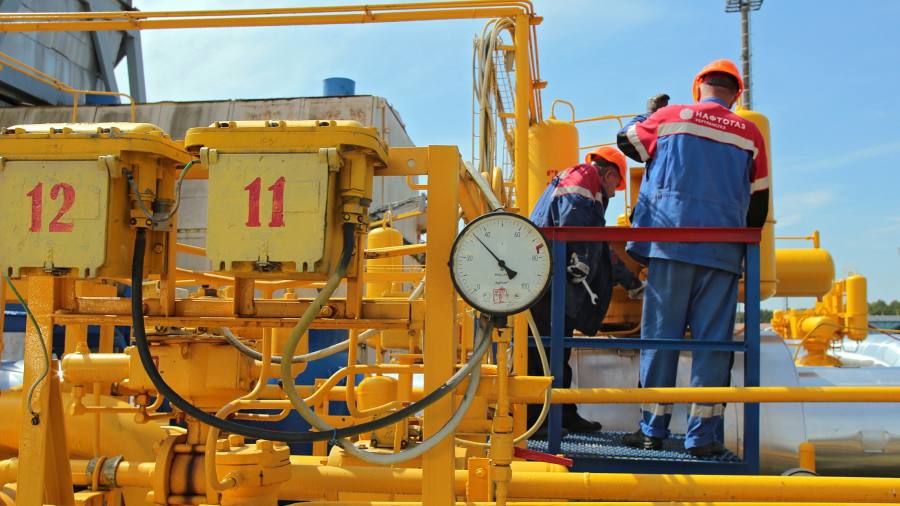Brussels is in talks with banks to provide guarantees for companies willing to store their gas in Ukraine’s vast underground gas storage despite the possibility that it could be destroyed.
The war-torn country has the largest gas tanks in Europe and has offered its capacity to European companies facing a potential supply glut come winter as storage levels within the bloc are already at record highs.
But businesses have qualms about storing gas reserves in Ukraine even as 80 per cent of the underground facilities are located in the west of the country, farthest from the frontline. Russia has targeted Ukrainian gas pipelines in past attacks, but no underground storages have so far been hit.
At present only a few companies with a high tolerance for risk are using Ukraine’s storage. European Commission vice-president Maroš Šefčovič told the Financial Times that to encourage use “on top of the competitive prices the Ukrainians are offering, we need to work on guarantees for international actors”.
The commission is in talks with lenders such as the European Bank of Reconstruction and Development “to develop this idea into a working project, which would further boost the energy security of Europe”, he added.
Four EU officials also confirmed the talks. A commission official said that Brussels was speaking to governments as well as financial institutions about providing “adequate insurance coverage” adding that it would help “lower the risk premium related to the situation in Ukraine”.
The EBRD confirmed it was in contact with the commission but declined to comment on discussions. The European Investment Bank said it had been consulted but that it would be against its policy of not funding fossil fuels.
Ukraine’s storage, which is owned by the state gas company Naftogaz, has capacity for 31bn cubic metres of gas. Of that it could offer up to 10 bcm to European companies with a possibility to extend that to 15 bcm if Ukraine can retake Russian-occupied territory, according to Naftogaz. That will add to the EU’s underground gas storage capacity of about 115 bcm.
“Ukraine possesses the biggest underground gas storage in Europe and a vast transmission infrastructure, able to supply more than 15 countries”, Naftogaz told the FT. The storage capacity that Ukraine can offer “is extremely important for those European countries who lack their own storage facilities and want to accumulate reserves for winter”, it added.
Naftogaz subsidiary Ukrtransgaz, which operates the storage sites, in April was certified as a gas storage operator that meets the EU’s standards — a prerequisite of Ukrainian gas storage being used for the bloc’s strategic gas reserves.
Storing European gas in Ukraine’s tanks would be a way of providing revenues to Kyiv to support it against Russia’s full-scale invasion. Before the invasion, 28 countries kept gas in Ukrainian storage but other than Moldova, officials would not disclose which countries currently had gas stored in the tanks for security reasons.
The EU’s gas storage tanks are 68 per cent full, an unusually high level for June thanks to a lack of demand over the mild winter. Researchers at Columbia University’s Center on Global Energy Policy warned this week that Europe faced possible oversupply and that Ukraine’s “underused and readily available” storage was “a unique opportunity for Europe to carry forward its current — but temporary — gas surplus into the winter and beyond”.
But risks to the infrastructure amid continued Russian missile attacks on Ukrainian cities and Kyiv partially banning gas exports after Moscow’s full-scale invasion last year have resulted in a lack of appetite from European companies.
“If the EU can devise a scheme that would protect companies against potential losses associated with storing gas in Ukraine, then it might well encourage a greater variety of firms to store gas in Ukraine”, said Natasha Fielding, head of European gas pricing at Argus Media.
If Ukrainian storage “gains a wider appeal”, she added, it could provide “a bigger buffer to meet demand in case of extremely cold weather or any unplanned supply disruptions this winter or in the following ones”.
Additional reporting by Christopher Miller in Kyiv
Read the full article here




